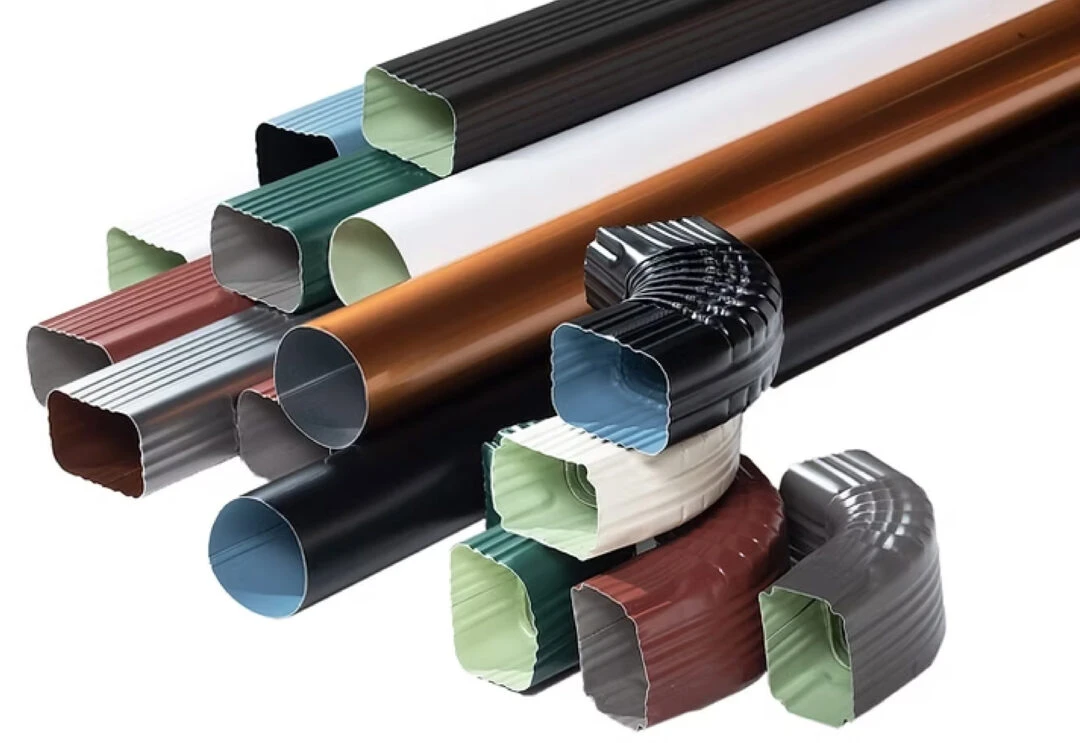
The Lifespan of Different Gutter Materials: What to Expect
When it comes to gutters, choosing the right material for your home can have a significant impact on both performance and longevity. Gutters are essential for directing water away from your roof and foundation, preventing costly damage over time. Understanding the lifespan of different gutter materials can help you make an informed decision and ensure your investment provides lasting protection. In this blog, we’ll explore the average lifespans of various gutter materials and what you can expect from each.
1. Aluminum Gutters (20–30 Years)
Aluminum gutters are one of the most popular choices for homeowners due to their affordability, lightweight nature, and resistance to rust. Typically, aluminum gutters have a lifespan of 20 to 30 years, depending on factors such as climate, maintenance, and installation quality.
One of the main benefits of aluminum gutters is their resistance to rust and corrosion. However, they can still be prone to dents and damage from heavy impacts or extreme weather. Routine maintenance, such as clearing debris and checking for any signs of wear, can help extend the lifespan of your aluminum gutters.
2. Copper Gutters (50+ Years)
Copper gutters are the gold standard when it comes to durability and aesthetics. These gutters can last for 50 years or more, making them an excellent long-term investment. Copper is highly resistant to corrosion and can withstand the elements much better than most other materials. Over time, copper gutters develop a patina that gives them a distinctive look and protects them from further corrosion.
While copper gutters come with a higher upfront cost, their longevity and low maintenance needs make them a great option for homeowners who want a gutter system that will last for decades without replacement.
3. Vinyl Gutters (10–20 Years)
Vinyl gutters are another affordable and lightweight option, often chosen by budget-conscious homeowners. The lifespan of vinyl gutters typically ranges from 10 to 20 years. While vinyl gutters are resistant to rust and corrosion, they are more susceptible to damage from extreme temperatures, such as freezing winters or scorching summers.
Exposure to UV rays can also cause vinyl gutters to become brittle over time, leading to cracks or breakage. Regular maintenance, including checking for leaks and cracks, can help extend the life of vinyl gutters, but they may need to be replaced sooner than other materials.
4. Steel Gutters (20–40 Years)
Steel gutters, particularly galvanized steel, offer durability and strength, making them a good choice for homes in areas with extreme weather. On average, steel gutters can last anywhere from 20 to 40 years, depending on the quality of the steel and the climate in which they are installed.
While steel gutters are resistant to damage from impacts, they are prone to rust and corrosion over time, especially if the protective coating wears off. Regular cleaning and maintenance, as well as occasional touch-ups with protective paint, can help extend the lifespan of steel gutters.
5. Zinc Gutters (50+ Years)
Zinc gutters, like copper, are known for their remarkable longevity, with a lifespan of 50 years or more. These gutters are highly resistant to corrosion and require minimal maintenance. Zinc is a self-healing material, meaning that it can naturally develop a protective layer over time, which helps it resist the elements.
Although zinc gutters are one of the more expensive options, their durability and low-maintenance requirements make them an excellent choice for homeowners looking for a long-term solution.
6. Stainless Steel Gutters (50+ Years)
Stainless steel gutters combine the best of both steel and aluminum, offering durability and resistance to corrosion. With a lifespan of 50 years or more, stainless steel gutters are ideal for homeowners who want a high-performance system that can withstand the harshest elements.
Like other metal gutters, stainless steel systems are more expensive upfront but offer superior longevity and minimal maintenance. Stainless steel gutters also resist rust, stains, and corrosion, making them one of the most durable options available.
Factors That Affect Gutter Lifespan
While the material of your gutters plays a significant role in their lifespan, there are other factors to consider that can impact how long they last:
- Climate: Extreme weather conditions, such as heavy rain, snow, or strong winds, can cause wear and tear on your gutters. In areas with freezing temperatures, gutters may be prone to damage from ice dams, while hot climates may cause materials like vinyl to become brittle.
- Maintenance: Regular maintenance is crucial to extending the lifespan of your gutters. Clogged gutters can cause water to pool, leading to rust, corrosion, or even foundation damage. Cleaning gutters and checking for leaks or damage at least twice a year can help ensure they last longer.
- Installation Quality: Proper installation is key to ensuring the longevity of your gutters. If gutters are not installed correctly, they may be more prone to sagging, leaking, or separating from the home. Choosing a professional gutter installation service is essential for a long-lasting system.
Conclusion
When choosing a gutter material, it’s important to consider your budget, climate, and how much maintenance you’re willing to perform. Each material has its own advantages and lifespan, and selecting the right option for your home will provide long-term protection for your foundation and landscaping. At Gutter Genius, we specialize in helping homeowners select, install, and maintain gutters that best suit their needs. Whether you’re interested in durable copper or affordable vinyl, our expert team is here to ensure your gutters last for years to come.